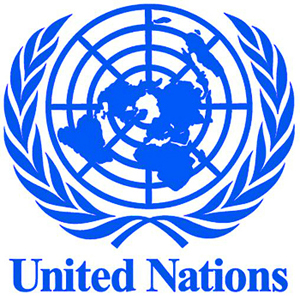
The United Nations Global Counter-Terrorism Strategy, unanimously adopted by the General Assembly on September 8, 2006, was hailed as a great achievement in terms of global governance. It was the first time all 192-member states signed on to a global counter-terrorism strategy. However, while the UN Global Counter-Terrorism Strategy looks great on paper, in reality the implementation of the strategy failed in many parts of the world considered hot spots for terrorists. One reason for this is that context and timing are both highly important when trying to develop successful counter-terrorism strategies, and the UN Global Strategy failed to fully take into account these factors.
One of the main challenges in evaluating counter-terrorism programs is that the desired outcome is the absence of terrorism or violent extremism. Practitioners must measure an event, or an outcome that does not happen. Classical military measurements such as territory gained, casualties suffered, or leaders killed are inadequate. There is no linear relationship between these indicators and terrorist organizations such as Al Qaeda’s ability to carry out terrorist operations around the world.
Thus, policies seem to be guided by the oversimplified thought that what constitutes victory for one party automatically amounts to defeat for the other, while little attention is paid to what constitutes victory and defeat from the viewpoint of terrorists. Therefore, context matters; goals will differ per context and per terrorist organization; and if strategies in combating terrorism worked on one terrorist group, it does not necessarily mean it will work on another.
The main critique of the strategy is that it is not really a strategy but rather a guiding normative framework. A true strategy lays out exactly how macro-level goals and objectives can be achieved with the resources available to specific parties. Several developing countries lack the ability to respond to many elements of the UN strategy, due to limited resources, competing priorities other than terrorism, or underfunded counter-terrorism based programs. Usually, the weakest countries in these regards tend to be the same countries where the threat is the greatest. Examples of this can be seen in several different regions throughout Africa, the Middle East, and many parts of South East and South Asia.
For many of these regions, there is a debate on whether terrorism constitutes as large a threat as other issues. For example, throughout the African continent, is it as serious as HIV/AIDS, poverty, and internal conflicts? The African Union (AU) adopted a broad-based normative framework to combat terrorism via its 1999 Counter-Terrorism Convention and 2004 Counter-Terrorism plan of action, but this framework is yet to be implemented by many of its 53 member states. This is due to either a lack of resources or different perceptions of the terrorist threat.
Another issue is that most of the casualties of terrorism throughout Africa are not linked to international terrorism, but to domestic insurgencies. However, most of the incidents, which are the focus of the UN Counter-Terrorism agenda, target Westerners or Western assets, leading to the perception in some parts of Africa that terrorism is predominantly a Western concern. So while all UN African member states have signed on to the UN Global Counter-Terrorism Strategy, in reality the implementation process is scattered depending on states’ capacities or lack thereof. This is problematic because many regions in Africa suffering from prolonged internal and external conflicts are now affected by instability, poverty, and political isolation, which make them vulnerable to terrorist exploitation.
The Asia-Pacific region also faces serious threats from terrorist groups with both local and global ties. In countries such as Indonesia, Thailand, and the Philippines, terrorists are able to exploit the regions’ large areas of land, which are insufficiently controlled by national governments. Much like the African region, differing threat perceptions, and the perception of terrorism as a national security problem largely limit counter-terrorism cooperation in the region to bilateral channels. This combined with the treasured norms of non-interference in the region, limits the ability of a multilateral strategy like the UN Global Strategy to take hold in the region.
Perhaps this lack of coordination and cooperation is best exemplified in South Asia. There are widely held suspicions that the intelligence agencies of various South Asian countries possess designs of neighbouring territories facilitating insurgent movements within other countries. This is best seen in the conflict between India and Pakistan over the Kashmir issue. This mutual distrust and suspicion impedes the development of any serious cooperation between the two states which have both been subject to many terrorist attacks in the past decade.
Therefore context matters when trying to develop successful counter-terrorism strategies. Terrorist organizations are flexible, adaptable organizations that learn from each other’s previous mistakes. They often learn faster than more rigidly structured government organizations that fight them. Each region features different terrorist organizations with different strategies and goals, so it is impossible to implement a one size fits all strategy. While the UN Global Counter-Terrorism Strategy was hailed as a great achievement, its implementation has failed to live up to expectations.




